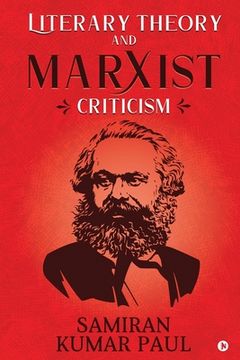Share
Literary Theory and Marxist Criticism
Samiran Kumar Paul
(Author)
·
Notion Press Media Pvt Ltd
· Paperback
Literary Theory and Marxist Criticism - Samiran Kumar Paul
Choose the list to add your product or create one New List
✓ Product added successfully to the Wishlist.
Go to My Wishlists
Origin: U.S.A.
(Import costs included in the price)
It will be shipped from our warehouse between
Friday, May 31 and
Tuesday, June 18.
You will receive it anywhere in United Kingdom between 1 and 3 business days after shipment.
Synopsis "Literary Theory and Marxist Criticism"
The Communist Party's attitude toward art in this period was, in general, epiphenomenal of its economic policy. A resolution of 1925 voiced the party's refusal to sanction anyone's literary faction. This reflected the New Economic Policy (NEP) of a limited free-market economy. The period of the First Five-Year Plan (1928-1932) saw a more or less voluntary return to a more committed artistic posture, and during the second Five-Year Plan (1932-1936), this commitment was crystallized in the formation of a Writers' Union. The first congress of this union in 1934, featuring speeches by Maxim Gorky and Bukharin, officially adopted socialist realism, as defined primarily by Andrei Zhdanov (1896-1948). Aptly dubbed by Terry Eagleton as "Stalin's cultural thug," it was Zhdanov whose proscriptive shadow thenceforward fell over Soviet cultural affairs. Although Nikolai Bukharin's speech at the congress had attempted a synthesis of Formalist and sociological attitudes, premised on his assertion that within "the microcosm of the word is embedded the macrocosm of history," Bukharin was eventually to fall from his position as the leading theoretician of the party: his trial and execution, stemming from his political and economic differences with Stalin, were also symptomatic of the fact that Formalism soon became a sin once more. Bukharin had called for socialist realism to portray not reality "as it is" but rather as it exists in socialist imagination.
- 0% (0)
- 0% (0)
- 0% (0)
- 0% (0)
- 0% (0)
All books in our catalog are Original.
The book is written in English.
The binding of this edition is Paperback.
✓ Producto agregado correctamente al carro, Ir a Pagar.

